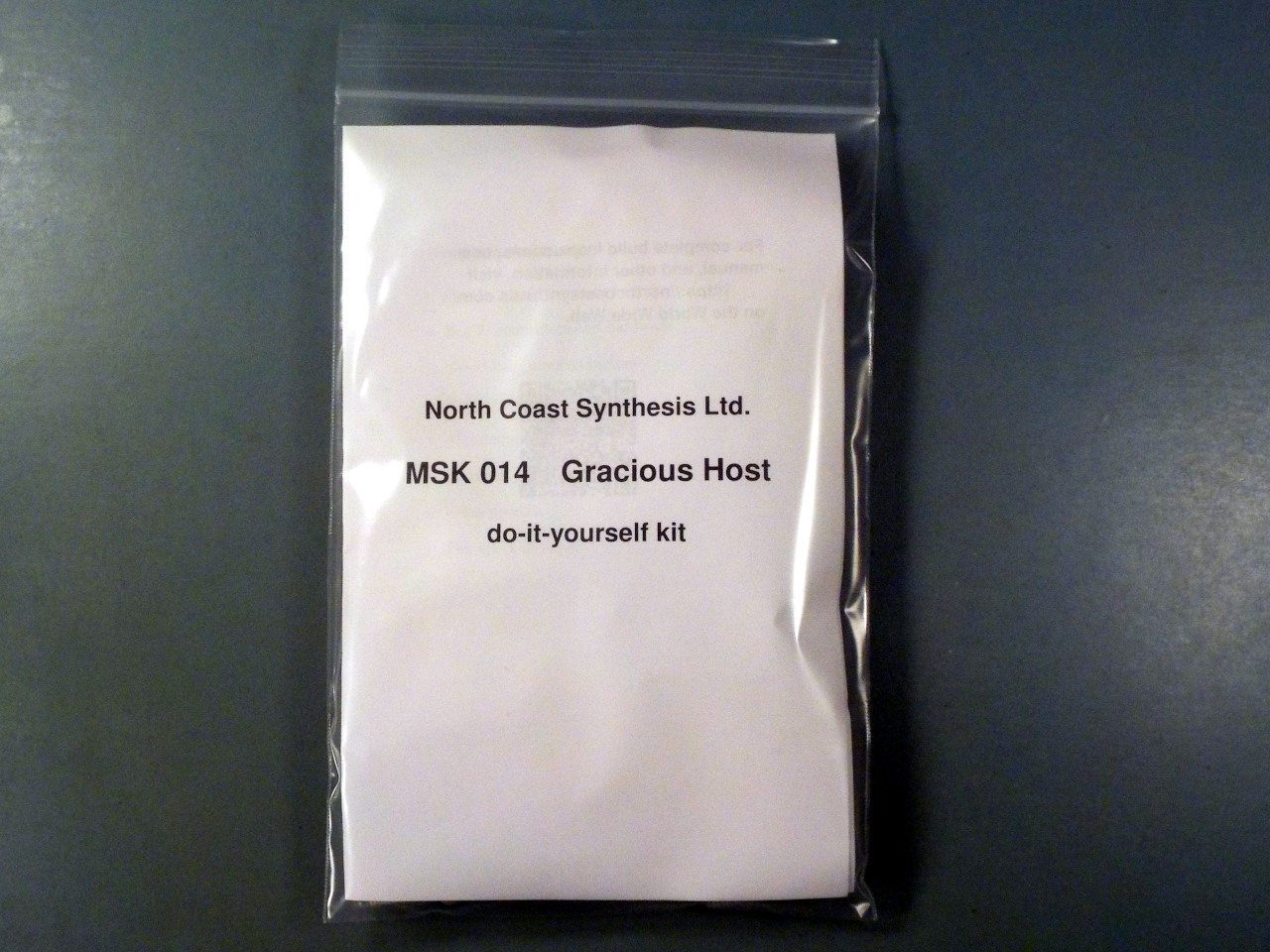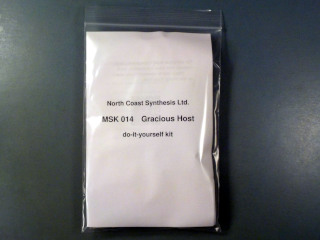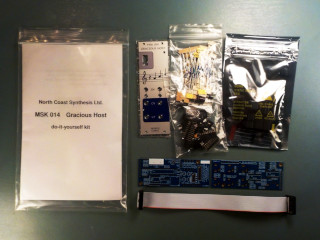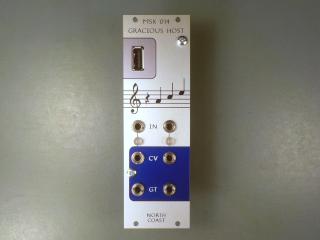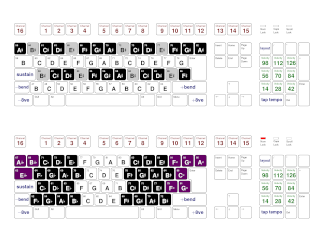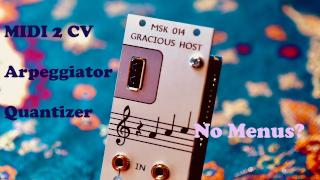MSK 014 Gracious Host SDIY Kit
US$163.99 including shipping
Also available as an assembled module.
Kits are not "USMCA originating" and will probably be subject to a high rate of duty when shipped to the USA. You may wish to consider the assembled version instead.
Every note in its place
The Gracious Host welcomes USB-MIDI devices to the Eurorack estate, allowing performers to play the modular synthesizer with a wide range of musical keyboards and other controllers. This module is an embedded host, not a device, in USB terms, meaning that common controller devices plug directly into it without needing the involvement of a separate computer. Operating modes, selected by MIDI channel number, include basic monophonic notes with pitch and velocity CV output; two-note polyphony for controlling a two-voice patch (separate voices or with automatic note assignment between them); three arpeggiator modes; two modes of quantizing input CV to MIDI-selected notes; and drum trigger and gate output.
Plug in an ordinary PC typing keyboard (QWERTY style) and it functions like a MIDI keyboard, allowing synthesizer control and access to all the Gracious Host's features without a dedicated music keyboard. An ordinary USB mouse can also generate control voltages, opening a range of interesting new performance possibilities.
North Coast's USB-MIDI interface is one of the few digital Eurorack modules still available in through-hole format. It continues our tradition of technical openness with complete source code for the firmware and build system, and detailed technical documentation totalling over 180 pages. Interested users or third parties can modify the Gracious Host firmware to support unique devices and operating modes; and it is available for use in other projects as free software under GPL3.
The Gracious Host is available as a pre-built 8HP Eurorack module or a DIY kit. Invite the MIDI world into your Eurorack.
- Supports most USB-MIDI devices, like musical keyboards, other musical controllers, and DIN to USB interfaces, to control Eurorack patches from MIDI. Twelve modes selected by MIDI channel.
- Supports most USB typing (QWERTY-style) keyboards to make them function like MIDI keyboards, with piano-style and Wicki-Hayden isomorphic layouts, pitch bend, sustain lock, octave shift, and tap tempo for the arpeggiator.
- Supports most USB mice as musical controllers, with output voltages for horizontal, vertical, and button states; optional quantization.
- Functions as an embedded host, meaning that USB devices can plug directly into this module without requiring a separate computer. Hubs are not supported.
- Can drive the Eurorack CV/gate bus (jumper-selectable option) to control a synthesizer voice without front-panel patching.
- Powerful 16-bit microcontroller (Microchip PIC24F series) running at 16 MIPS with 64K of flash program memory, 8K of on-chip RAM, 128K of off-chip RAM, and a variety of built-in peripherals. Thoroughly documented open source firmware (GPL3), ready for modification and experiment. Standard firmware leaves plenty of free space in memory for future enhancements.
- No compromises on build quality: real aluminum panel, not PCB material, with colour printing; panel screwed solidly to both PCBs for maximum ruggedness; nickel and gold plating on the circuit boards; close-tolerance metal film fixed resistors.
- Through-hole for easy hand construction and maintenance
- Fully open design - no lock-in
Specifications
- 8HP Eurorack synthesizer module, 39mm deep including space for the power cable.
- Two analog/digital CV inputs (useful range 0V-5V, digital threshold around 1.6V). Two analog CV outputs (useful range 0V-5V); two digital trigger/gate outputs (logic levels 0V and approximately 9V). Two bi-colour LEDs for status display.
- Current requirements in typical use: 10mA +12V, 20mA -12V, 130mA +5V. Note that this module requires +5V Eurorack power, because devices attached to the USB port draw their +5V power through this module. The 130mA specification includes the power for the attached USB device, on the assumption that the USB device is drawing 100mA, which is a typical maximum for low-power devices; the Gracious Host can supply up to 200mA to devices which require it, assuming that much is available from the power supply.
- Build difficulty: easy. 289 solder joints. All through-hole. Output voltage calibration involves patching it into a Eurorack 1V/octave VCO.
Resources
- User/Build Manual (PDF, 10M)
- Programmer's Manual (PDF, 638K)
- Source Code Package (ZIP, 22M)
- Firmware image (2024-11-17 version)
